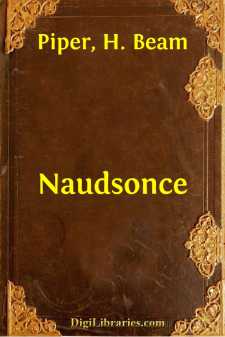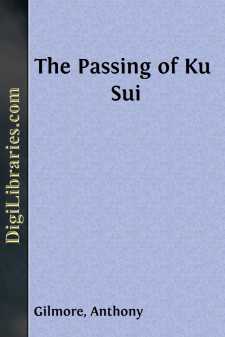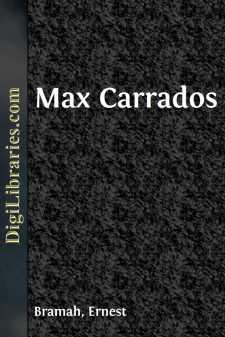Fiction
- Action & Adventure 180
- Biographical 15
- Christian 59
- Classics 6965
- Coming of Age 5
- Contemporary Women 3
- Erotica 8
- Espionage/Intrigue 12
- Fairy Tales, Folklore & Mythology 236
- Family Life 169
- Fantasy 117
- Gay 1
- General 596
- Ghost 32
- Historical 808
- Horror 43
- Humorous 160
- Jewish 25
- Legal 4
- Medical 22
- Mystery & Detective 315
- Political 49
- Psychological 41
- Religious 64
- Romance 159
- Sagas 11
- Science Fiction 730
- Sea Stories 113
- Short Stories (single author) 537
- Sports 10
- Suspense 1
- Technological 8
- Thrillers 2
- Urban Life 31
- Visionary & Metaphysical 1
- War & Military 173
- Westerns 199
Fiction Books
Sort by:
by:
H. Beam Piper
The sun warmed Mark Howell's back pleasantly. Underfoot, the mosslike stuff was soft and yielding, and there was a fragrance in the air unlike anything he had ever smelled. He was going to like this planet; he knew it. The question was, how would it, and its people, like him? He watched the little figures advancing across the fields from the mound, with the village out of sight on the other end of...
more...
On the northern shore of Sicily are still to be seen the magnificent remains of a castle, which formerly belonged to the noble house of Mazzini. It stands in the centre of a small bay, and upon a gentle acclivity, which, on one side, slopes towards the sea, and on the other rises into an eminence crowned by dark woods. The situation is admirably beautiful and picturesque, and the ruins have an air of...
more...
by:
Frank Norris
At four o'clock in the morning everybody in the tent was still asleep, exhausted by the terrible march of the previous day. The hummocky ice and pressure-ridges that Bennett had foreseen had at last been met with, and, though camp had been broken at six o'clock and though men and dogs had hauled and tugged and wrestled with the heavy sledges until five o'clock in the afternoon, only a...
more...
by:
Anthony Gilmore
The PlanA screaming streak in the night—a cloud of billowing steam—and the climax of Hawk Carse's spectacular "Affair of the Brains" is over.Like a projectile Hawk Carse shot out in a direction away from Earth.The career of Hawk Carse, taken broadly, divides itself into three main phases, and it is with the Ku Sui adventures of the second phase that we have been concerned in this...
more...
The first edition of this dictionary having been exhausted, it has been extensively revised, and certain new features and alterations have been introduced into it. 1. The principle of arranging all words according to their actual spelling has been to a considerable extent abandoned. It was admittedly an unscientific one, and opened the door to a good many errors and inconsistencies. The head form in...
more...
Five minutes later two ambulances rolled out of the garage and took the four-mile winding ribbon of concrete which separated the Michaelville water impact range from the main front of the Aberdeen Proving Ground. On each ambulance was a hastily awakened and partially clothed medical officer. For three miles they tore along the curving road at high speed. Without warning the leading machine slowed down....
more...
by:
Anonymous
Job 1:1 There was a man in the land of Uz, whose name was Job. That man was blameless and upright, and one who feared God, and turned away from evil. 1:2 There were born to him seven sons and three daughters. 1:3 His possessions also were seven thousand sheep, three thousand camels, five hundred yoke of oxen, five hundred female donkeys, and a very great household; so that this man was the greatest of...
more...
by:
Charles Major
CHAPTER I On the Heart of the Hearth A strenuous sense of justice is the most disturbing of all virtues, and those persons in whom it predominates are usually as disagreeable as they are good. Any one who assumes the high plane of "justice to all, and confusion to sinners," may easily gain a reputation for goodness simply by doing nothing bad. Look wise and heavenward, frown severely but...
more...
by:
Ernest Bramah
It was eight oâclock at night and raining, scarcely a time when a business so limited in its clientele as that of a coin dealer could hope to attract any customer, but a light was still showing in the small shop that bore over its window the name of Baxter, and in the even smaller office at the back the proprietor himself sat reading the latest Pall Mall. His enterprise seemed to be justified, for...
more...
by:
Herman Bernstein
INTRODUCTORY NOTE. OUT of the darkest depths of life, where vice and crime and misery abound, comes the Byron of the twentieth century, the poet of the vagabond and the proletariat, Maxim Gorky. Not like the beggar, humbly imploring for a crust in the name of the Lord, nor like the jeweller displaying his precious stones to dazzle and tempt the eye, he comes to the world,—nay, in accents of Tyrtaeus...
more...











